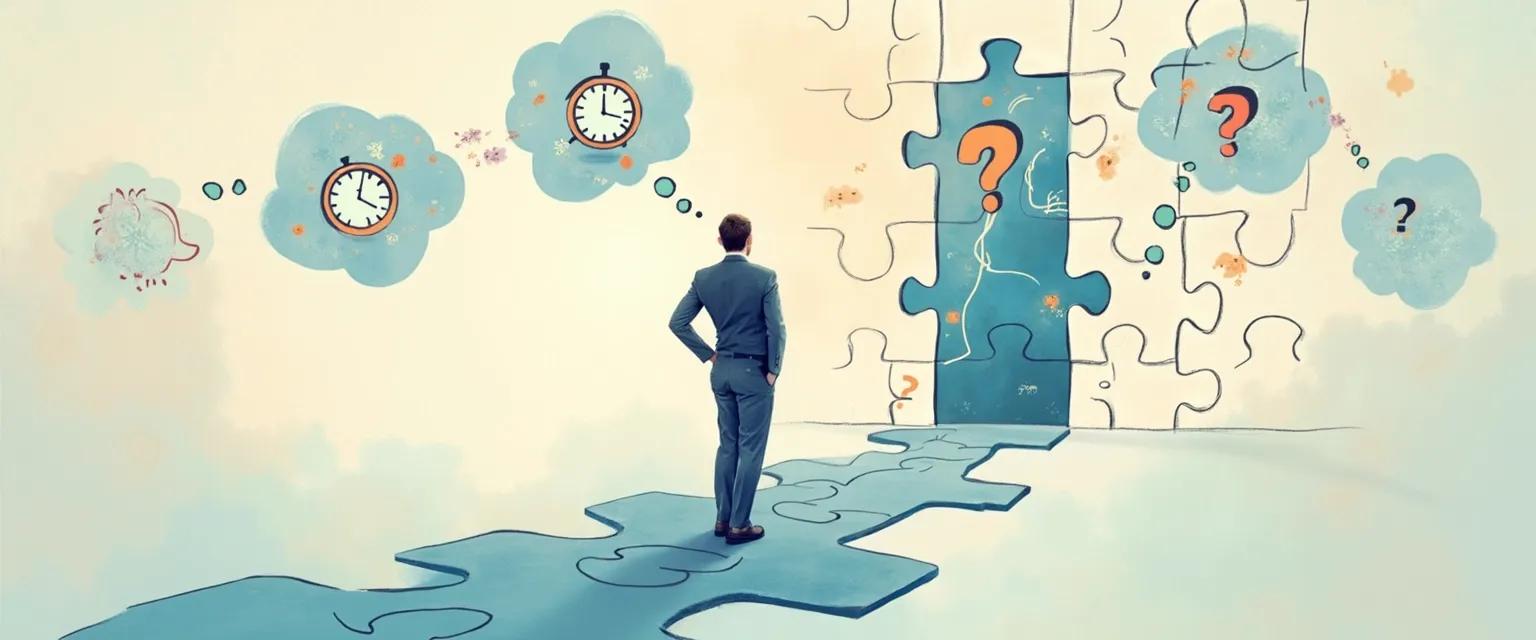5 Mental Blocks That Trigger Procrastination During Cognitive Challenges
Ever found yourself staring at a complex task, only to suddenly discover an urgent need to organize your sock drawer? You're not alone. Procrastination during cognitive challenges is a universal phenomenon that affects even the most disciplined minds. When faced with intellectually demanding work, our brains often seek escape routes, leading us down the familiar path of "I'll do it later" – a path that rarely leads to productivity.
The science behind procrastination during cognitive challenges reveals it's not simply laziness. Research shows our brains are wired to avoid mental strain, creating resistance when confronted with tasks requiring deep thought. Understanding the specific mental blocks that trigger this avoidance is the first step toward overcoming them. Let's explore five common barriers that cause us to postpone complex cognitive work and discover practical strategies to break through each one.
The cost of this cognitive avoidance is significant – reduced productivity, increased stress, and diminished confidence in our abilities. By identifying which mental blocks affect you most, you'll be equipped with targeted strategies for focus improvement that transform procrastination into productivity.
Understanding the 5 Mental Blocks Behind Procrastination During Cognitive Challenges
Mental Block #1: Perfectionism
Perfectionism creates an impossible standard that makes starting difficult. When tackling cognitively demanding tasks, perfectionists often delay beginning until they feel "ready" to produce flawless work. This readiness rarely arrives, creating a perpetual cycle of procrastination during cognitive challenges. The solution involves embracing "good enough" as a starting point, recognizing that refinement comes through iteration.
Mental Block #2: Task Ambiguity
When goals are unclear, our brains struggle to create an action plan. This ambiguity leads to cognitive avoidance – we procrastinate because we don't know exactly what we're trying to accomplish. Defining clear objectives and concrete next steps provides the clarity needed to overcome this particular decision-making barrier.
Mental Block #3: Cognitive Overwhelm
Complex tasks often appear as massive, intimidating mountains of mental effort. This perception of overwhelming cognitive load triggers procrastination as a self-protective mechanism. Breaking down the work into smaller, manageable components makes the mental effort digestible and less threatening.
Mental Block #4: Fear of Failure
The anticipation of judgment – whether from others or ourselves – creates powerful resistance. This fear is especially potent during cognitive challenges where our intellectual capabilities feel exposed. Creating a psychologically safe environment for yourself removes this barrier to starting difficult mental work.
Mental Block #5: Reward Disconnect
Our brains are motivated by rewards, but complex cognitive tasks often have delayed gratification. When the reward feels too distant from the difficult mental work, procrastination becomes more likely. Establishing immediate, meaningful rewards for progress bridges this motivational gap.
Practical Strategies to Overcome Procrastination During Cognitive Challenges
The 5-minute starting technique works wonders for breaking cognitive inertia. Commit to just five minutes of focused work on your challenging task. This minimal commitment bypasses the brain's resistance mechanisms, and once started, continuing becomes significantly easier.
Implement the chunking method by dividing complex mental tasks into smaller, more manageable pieces. This approach transforms overwhelming cognitive challenges into a series of achievable mini-tasks, each providing a sense of accomplishment that builds momentum.
Create implementation intentions using "if-then" planning to prepare for cognitive roadblocks. For example: "If I feel the urge to check social media, then I'll take three deep breaths and refocus for just two more minutes." This technique, backed by anxiety management research, programs your brain with specific responses to procrastination triggers.
Design immediate rewards that follow periods of focused cognitive work. These rewards activate your brain's motivation centers, creating positive associations with tackling difficult mental tasks. Even small rewards can significantly reduce procrastination during cognitive challenges.
Practice mindfulness techniques to notice procrastination impulses without automatically acting on them. This awareness creates a crucial pause between the impulse to procrastinate and the action, allowing you to redirect your attention back to the task.
Master Your Mind: Taking Control of Procrastination During Cognitive Challenges
Understanding the relationship between specific mental blocks and procrastination empowers you to take strategic action. By identifying which blocks most affect your productivity, you can apply targeted solutions rather than generic productivity advice.
The benefits of consistently tackling cognitive challenges compound over time. Each difficult task you complete strengthens your mental resilience, making future challenges less intimidating. This positive spiral replaces procrastination with confidence.
Ready to transform your relationship with complex tasks? Start by identifying which of the five mental blocks most affects your procrastination during cognitive challenges. Then implement just one strategy from this guide today. Small, consistent changes in how you approach cognitive challenges create remarkable improvements in productivity, reducing stress and building confidence in your intellectual capabilities.




